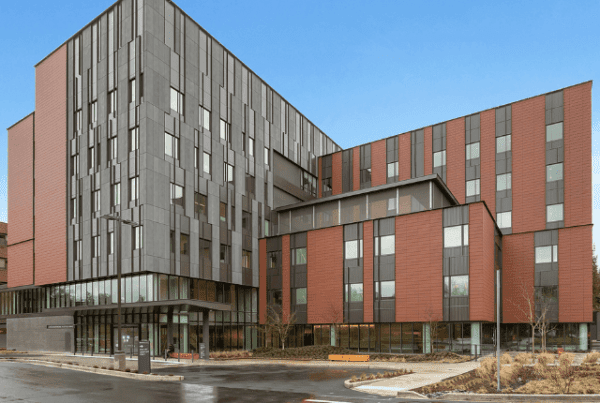Quick Read:
- At UW Medicine, 25% of our employees identify as being Asian, Native Hawaiian or Pacific Islander (ANHPI).
- ANHPI communities have deep roots in Seattle and King County and contribute to the cultural richness of our region.
- The increase in hate crimes during the COVID-19 pandemic reflects a persistent form of racism in American history that can make members of these communities feel like foreigners in their own country.
This month, we are celebrating the contributions of UW Medicine employees who identify as Asian, Native Hawaiian or Pacific Islander (ANHPI). They are 25% of our staff, and they are essential to the success of our health system in their diverse roles as frontline and support staff, managers, clinicians, teaching and research faculty, and senior leaders.
Our ANHPI employees are also part of communities with deep roots in our region. Native Hawaiians first sailed here with Captain Vancouver in 1792. They were followed by immigrants from China in the 1860s, from Japan in the 1880s, and from the Philippines after it became an U.S. colony in 1898. Since the 1960s, this population has continued to grow with large numbers of immigrants from Korea, Vietnam, Cambodia, Laos, Thailand and the countries of South Asia.
Today, the International District, where many first settled, is a vibrant cultural center with multiethnic restaurants and shops. It is also home to the Panama Hotel, a historic landmark, and the Wing Luke Museum. Other local cultural centers include the Asian Art Museum, Japanese Garden and Kubota Gardens in Seattle as well as the Great Wall Mall in Kent, Yao Garden in Bellevue and Pacific Bonsai Museum in Federal Way.
Recognizing diversity: While they share a single observance month, we want to recognize the great diversity of ANHPI communities based on their very different countries of origin. Tomorrow, when we raise the ANHPI flag on our hospital campuses, you will see a representation of this diversity in the 12 flowers, which are each a symbol of a nation.
Another representation of diversity is the addition of “Native Hawaiian” to the name of our cultural observance. This change recognizes that the indigenous people of Hawaii have a distinct identity from Pacific Islanders who trace their heritage to Melanesia, Micronesia or other parts of Polynesia.
Responding to racism: Our cultural observance month is also a time to learn about issues and challenges. During the past three years, the scapegoating of Asian Americans for the COVID-19 pandemic has led to increased concerns about safety due to the rise in assaults and hate crimes, which have often targeted vulnerable members of their community such as elderly women. It has also brought to surface a pervasive strain of racism in our country’s history. Like earlier examples, such as the Chinese Exclusion Act of 1882 and the internment of Japanese Americans during World War II, this racism is based on viewing Asian Americans as foreigners.
Against this backdrop of racism, we can provide support to our ANHPI employees at work by speaking out whenever we observe interactions among patients and staff that reflect any form of prejudice. We must also guard against more subtle forms of racism by becoming aware of microaggressions that can make people feel that they are outsiders, such as asking “Where are you from?” based only on a person’s appearance.
To learn more about our ANHPI communities, we encourage you to look at the resources on The Huddle as well as the employee profiles that will be published later this month.
Thank you for your continuing support to make UW Medicine an inclusive workplace for every employee.
Sincerely,
Timothy H. Dellit, MD
Interim CEO, UW Medicine
Interim Executive Vice President for Medical Affairs and
Interim Dean of the School of Medicine,
University of Washington
Paula L. Houston, EdD
Chief Equity Officer
Office of Healthcare Equity, UW Medicine
Associate Vice President for Medical Affairs
University of Washington
Cynthia Dold
Interim President, UW Medicine Hospitals & Clinics
Interim Vice President for Medical Affairs,
University of Washington
Jacqueline Cabe
Chief Financial Officer, UW Medicine
Vice President for Medical Affairs,
University of Washington
Ruth Mahan
Chief Business Officer, UW Medicine
Chief of Staff, UW Medicine
Vice President for Medical Affairs,
University of Washington
Anneliese Schleyer, MD
Interim Chief Medical Officer, UW Medicine
Interim Vice President for Medical Affairs,
University of Washington
Don Theophilus
Chief Advancement Officer, UW Medicine
Vice President for Medical Affairs,
University of Washington
Cindy Hecker
Chief Executive Officer
UW Medical Center
Sommer Kleweno Walley
Chief Executive Officer
Harborview Medical Center
Jeannine Erickson Grinnell
Chief Executive Officer
Valley Medical Center
Anthony Dorsch
Executive Director
UW Physicians
Pranika Laing
Interim Associate Vice President/Executive Director
UW Medicine Primary Care and Population Health
Jeff Richey
Executive Director
Airlift Northwest


